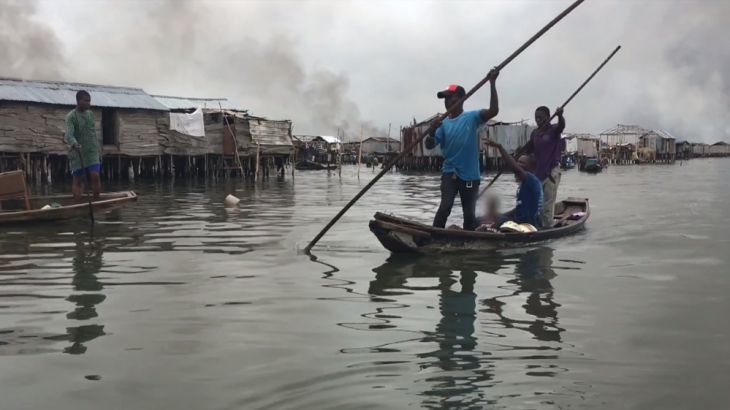
Evictions: Fighting to Keep a Home in Jerusalem, Lagos & Bajamar
From Lagos to Jerusalem and Bajamar in Colombia, people take a stand against evictions in their struggling communities.
To Return a King
Elijah Atinkpo lost almost everything he and his family had worked for on April 9, 2017. It was the day police destroyed the impoverished waterfront community of Otodo Gbame in Lagos, Nigeria.
“The government is trying to erase my own home, my own story, my own history, my background. You have a development plan that leaves no room for the poor. Is that really a development plan? After everything, you have nothing left,” Atinkpo tells Al Jazeera.
Keep reading
list of 4 itemsPhotos: Malnutrition threatens future Afghan generations
From prisoner to president in 20 days, Senegal’s Diomaye Faye takes office
Senegal’s fishermen pin hopes on new president to help them fill their nets
The forced eviction at Otodo Gbame was not a one-time event. The Nigerian government has been accused of displacing poor communities living on prime real estate in recent years. While they claim the forced evictions are for security reasons, rights groups like Amnesty International call incidents like these “land grabs”.
Like thousands of other Nigerians, Atinkpo fled without any belongings and watched his home burn down from across the water. At the same location years later, he reflects on the bitter experience and recites a poem, expressing his determination for justice.
“Are the megacities for the people or against the people? I left as a runaway, but I will return as a king,” Atinkpo says.
Atinkpo now works as an activist for a legal group called the Justice and Empowerment Initiatives (JEI), committed to supporting evicted communities.
Sons of Jerusalem
Hatem Abu’asab pays a heavy price for living in Jerusalem. In an effort to shift population demographics, the Israeli government can revoke the residency of Palestinians living on the land.
An eviction order has kept Hatem in and out of court for the past four years.
“They made us leave our clothes, furniture, everything. The coffee was still on the stove when they made us leave. My children tried to stand up for me. They attacked them and forced the women out too. It was very violent,” Abu’asab recalls.
His family has lived in Jerusalem since 1850 and their place in the city is not something Hatem is willing to give up.
“We are Jerusalemites and have been so for generations […] They are deciding to try to evict us because we live among them. If you notice, there are no Arabs around my house,” Abu’asab says and adds that he will not allow the Israeli government to take away his home.
To further complicate his fight for his home, the Israeli army constantly arrests his young son, Mahdi. Mahdi was 11 years old the first time he was arrested and 15 years old when he was kept under house arrest for 10 months.
Between Mahdi’s court appearances and his own eviction court cases, Abu’asab is thinly stretched between his fight for his home and his son’s freedom.
Colombia: Bajamar Ballad
Activist and politician Benildo Estupinan takes a stand against the eviction of his waterside community, inhabited by people already displaced by violence.
Estupinan teams up with local artists in Bajamar, a black community built over the water in Colombia‘s Pacific city of Buenaventura, to advocate for safer living conditions and fight evictions. Estupinan and other artists record tracks about their resistance and spread their music throughout Bajamar, motivating the community to hold their ground.
“Through music, you can resolve conflicts and make a society that is more equal and more just,” Estupinan says.
The people of Bajamar are at risk of being displaced again as the Colombian government plans to expand the city’s port and build a modern seafront.
The construction of a site to relocate the families is under way, but it leaves them with no easy access to the source of their livelihood, the sea.